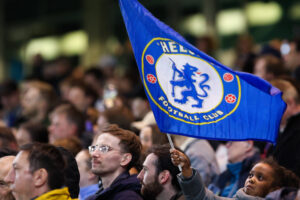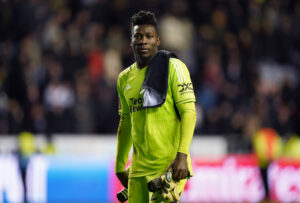Tottenham Hotspur made a sluggish start to the Premier League season, picking up only four points out of the maximum of nine. Whilst this form is hardly catastrophic, it accelerates the ‘Wembley Curse’ rumours and immediately places the club on the back foot. Fortunately, there is time to improve, and despite results, the overall performances made so far have shown some promise.
Tottenham’s Form Sluggish But To Improve
Wembley Curse
Spurs have now failed to win eight times out of the last ten matches there, creating rumours of a psychological disadvantage at the stadium. Of course, this is where cup finals and international football take place. Admittedly, Premier League clubs must, therefore, enjoy playing at Wembley, adding some immensity to these early season fixtures. But, the notion of some kind of curse, or inability to play at a stadium is entirely nonsensical.
This is mainly because these are professionals, who play at all kinds of stadia throughout the globe. They have to adapt to whatever pitch they play upon. Wembley is larger than White Hart Lane’s pitch, especially in terms of width. Initially, this will cause a period of adaptation, grinding out inconsistencies during training and performing on match days. But, Spurs have won many matches last season away from home, showing that such adaptation is possible.
Finishing
The most frustrating aspect of Tottenham’s form is the good standard of football on show. Often, even against Chelsea and Burnley, the overall possession was at least 67%, and the number of shots dwarfing the opposition’s total too. Coupled with this, especially at the Burnley match, many players spurned clear cut chances, or Tom Heaton made a good save.
But, often his work was made easier by poor standards of finishing. For example, Spurs shot only five times on target in their 28 attempts on goal. A couple of these shots on target were clear cut chances to score. Harry Kane missed a one-on-one, then Dele Alli passed a shot down the middle. If the players were to execute their finishing more clinically, the last two matches may well have resulted in two wins.
Mentality
In the dying embers of the last two matches, there have been collapses. From a drawing position against Chelsea and a winning position against Burnley, Spurs spurned four points across the last four minutes of each game. This is unlike the mentality of the squad in the past. Usually, the players chase a match, looking to grab a goal to rescue a point in the final minutes. But, a reversal has occurred, where now the players look weak, lethargic and are prone to errors in the late stages of the game. Defensive errors were present in both the Chelsea and Burnley matches, with the sloppy dispossession of the ball, followed up by a leaky defence.
Pochettino himself has admitted his side may have a ‘mental problem’. It seems as though holding onto a match is missing from the game plan. The usual tactics, historically, to outscore the opposition are less effective in the modern game. So many successful teams, including Leicester and Chelsea’s recent Premier League title wins, implement a defensive style of play. Burnley merely pumped balls over the back line, whilst the Tottenham fullbacks stayed pushed up, meaning the inevitable goal would happen. Now, Tottenham must not lose sight of their philosophy, but they must be able to shut the opposition out.
Conclusion
Pochettino and the Tottenham board will need to work hard to make some improvements. The start to the season has been disappointing due to the ability to hold onto matches late on. Tactics and game-management, rather than Wembley itself, are to blame for this sluggish start. But, with a little more clinical finishing and defensive strength, Spurs will thrive once again.
Main Photo






